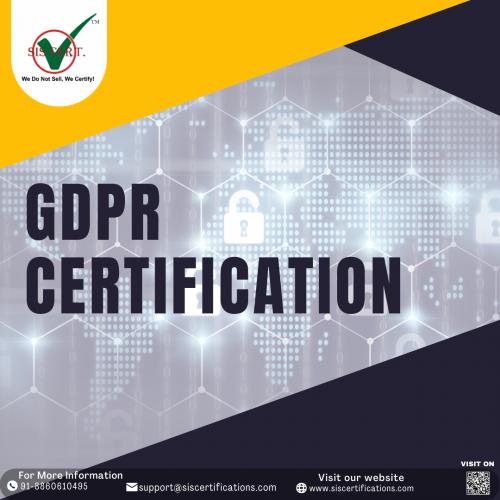GDPR Compliance: Beyond Certification, Building a Culture of Privacy

GDPR compliance is not just about obtaining certification; it's about embedding a culture of privacy throughout an organization.
Here's how to go beyond certification and build a sustainable culture of privacy:
Leadership Commitment: Start at the top. Leadership must demonstrate a strong commitment to privacy and data protection. This includes allocating resources, setting clear policies, and leading by example.
Awareness and Training: Educate employees at all levels about the importance of GDPR compliance and their roles in protecting personal data. Provide regular training sessions, workshops, and awareness campaigns to ensure everyone understands their responsibilities.
Privacy by Design: Integrate privacy considerations into the design and development of products, services, and business processes from the outset. This involves conducting privacy impact assessments (PIAs) and implementing privacy-enhancing technologies.
Data Minimization: Collect and process only the data necessary for specified purposes. Implement data minimization practices across your organization to reduce the risk of unauthorized access or misuse of personal data.
Transparency and Consent: Be transparent about how you collect, use, and share personal data. Obtain clear and unambiguous consent from individuals before processing their data, and provide them with control over their data through privacy settings and preferences.
Data Security: Implement robust security measures to protect personal data against unauthorized access, disclosure, alteration, or destruction. This includes encryption, access controls, regular security assessments, and incident response procedures.
Data Subject Rights: Respect individuals' rights under the GDPR, such as the right to access, rectification, erasure, and data portability. Establish processes for handling data subject requests promptly and transparently.
Vendor Management: Ensure that third-party vendors and service providers comply with GDPR requirements when processing personal data on your behalf. Establish clear contractual agreements and perform due diligence on vendors' data protection practices.
Accountability and Governance: Establish clear accountability for GDPR compliance within your organization. Implement effective governance structures, such as data protection officers (DPOs), data protection impact assessments (DPIAs), and internal controls.
Continuous Improvement: GDPR compliance is an ongoing process. Regularly review and update your privacy policies, procedures, and controls to adapt to evolving regulatory requirements and emerging privacy risks.
By fostering a culture of privacy that goes beyond mere compliance, organizations can build trust with customers, enhance their reputation, and mitigate the risks associated with data protection non-compliance.
Comments